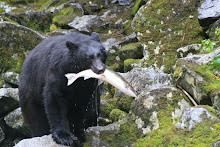 Many people dream of life on an idyllic palm-fringed island surrounded by azure blue waters. Peter Rudiak-Gould was no exception when he volunteered for the WorldTeach program and was posted to the remote Marshall Islands. Laying roughly halfway between the Philippines and Hawaii, the Marshall Islands are noted as a battleground of World War 2 and where the US conducted their nuclear test program (on the now deserted Bikini Atoll).
Many people dream of life on an idyllic palm-fringed island surrounded by azure blue waters. Peter Rudiak-Gould was no exception when he volunteered for the WorldTeach program and was posted to the remote Marshall Islands. Laying roughly halfway between the Philippines and Hawaii, the Marshall Islands are noted as a battleground of World War 2 and where the US conducted their nuclear test program (on the now deserted Bikini Atoll).
Not only that, but Peter was posted to Ujae, which the Marshallese consider remote, with a population of less than 500 and with no telephones, cars or shops. For ten months, Peter undertook teaching rude and wild children with little interest in education and who really saw him as little more than a novel longer-term guest. Though the adult population was perfectly friendly, Peter felt that they shunned him and left him somewhat alone.
This tiny island challenged Peter as every step he took and every activity was scrutinised and watched by the population. The Ujae population live in a community-based environment with limited space. And there was little opportunity for Peter to escape this. Early in his book, Rudiak-Gould notes "This was my new world, so I decided to explore it. ... I stepped onto the beach and embarked on a bold one-man expedition: to circle the entirety of the island's shore. Forty-five minutes later I wondered what else I could do for the rest of the year." He continues “This was a country of 1,225 islands totalling only seventy square miles of land – it was Washington DC, shattered into a thousand pieces over an area the size of Mexico."
Only twenty-one, Peter was determined to offer the most he could to the children and to absorb, learn from and understand the Marshallese culture, history, language and people. In this way, the book goes well beyond the simplistic young man’s journey of discovery with insightful stories and fascinating details into the effects of American support for these remote atolls.
Rudiak-Gould learns the Polynesian-based language of Marshallese which gives an insight into the local lives. There are eleven distinct words for coconut and eighteen words for breadfruit. The overwhelming number of fishing terms highlight the dependence on this highly developed skill include the simple four-letter word apep for “using woven brown coconut fronds to catch sardines and minnows as they are chased ashore by larger fish”.
Marshallese is rich in sailing terms (over 100 terms related to a canoe and 35 describing the wind) befitting their remarkable ocean skills. With only the currents and skies to navigate by and sailing a simple outrigger canoe, the Micronesians covered thousands of miles over the open seas, settled many of the Pacific islands including Hawaii and Easter Island and brought the sweet potato from the South American mainland. Fishing in the traditional way using nets and spears continues from the canoes, the islanders expertly locating hidden reefs and known locations for specific species without even a compass.
As a virtual appendix in the book, Rudiak-Gould studies the effect of climate change on an island country that is average of only two metres above sea level. The islanders continue to live in their typical day-to-day existence and are putting their faith in God to solve many of these complex medium-term issues. The book includes an interview with the President of the Marshall Island and his view on global warming and the issue that his nation is one of the most threatened by the rising sea levels.
Surviving Paradise is a fascinating account of an apparently idyllic island life in a place that Peter Rudiak-Gould describes as “a culture based on survival. What looked like paradise was actually one of the hardest places on Earth to live”. Now studying anthropology at Oxford University, Rudiak-Gould combines a sense of travel adventure with humour, the contrast of island and western living, an insightful cultural understanding of the islanders and a brief analysis of climate change. In the writings of someone in their early twenties, it is an entertaining and engaging journey through one of the planet’s most remote communities and is an ideal read over the festive period.
Note
An interview with Peter Rudiak-Gould will appear in the next few days.
Monday, December 7, 2009
Book Review: Surviving Paradise (Peter Rudiak-Gould)
Labels:
book review
Subscribe to:
Post Comments (Atom)




3 comments:
Since I've always been drawn to the islands and have actually lived in the Caribbean (which can't in any way be considered remote) this sounds like a fascinating book - one I am anxious to read.
great..
this book seems very interesting..
for sure it has a great story that people could not resist to finish it.
@BarbaraW: The analysis of the remoteness struck me in some ways.
@Vacation Deals: Well written indeed.
Post a Comment